Originally posted in the August 2017 Dean’s Corner. View original article here.
 A team of Texas A&M University faculty and staff accompanied eight next-generation trainees through the U.S. and Africa in June and July for an innovative international training course that is part of the Scientific Business Development & Management Program’s “Bench to Shop” program.
A team of Texas A&M University faculty and staff accompanied eight next-generation trainees through the U.S. and Africa in June and July for an innovative international training course that is part of the Scientific Business Development & Management Program’s “Bench to Shop” program.
The experiential training course embarked at the Texas A&M College of Veterinary Medicine & Biomedical Sciences (CVM) before traveling to three institutions, at the University of Texas Medical Branch-Galveston, Colorado State University, and the Agricultural Research Council-Onderstepoort Veterinary Institute in South Africa.
Eight early career faculty, postdoctoral, and graduate student trainees, who shared the common academic interest in livestock transboundary animal diseases (TAD), originated from Texas A&M, Texas A&M Health Science Center, the University of Georgia, Kansas State University, Plum Island Animal Disease Center (New York), the University of Texas Medical Branch-Galveston, North Carolina State University, and the University of Pretoria (South Africa).
The “Bench to Shop” program is expected to cultivate a new generation of scientists to further contribute to the DHS science and technology mission through innovation and research that contributes to the defense of U.S. agriculture.
The hands-on training across different institutions in the U.S. and Africa was invaluable for the trainees, offering exposure to different teaching methods that addressed livestock transboundary animal disease problems, the opportunity to learn different methodologies for handling TAD, exposure to international work, interacting with vaccine manufacturers, and the different practices for biocontainment training which varied between institutions.
 “The knowledge, relationships, and experiences I have gained through the ‘Bench to Shop’ training program are vital tools I can utilize in my pursuit of a career in transboundary disease research,” one trainee said. “Through the online curriculum, I gained an understanding and appreciation for the commercialization pathway, and the experiential portion of the training not only solidified my goals of pursuing a future in this type of research, but also allowed me to experience working in high-containment research laboratories for the first time.
“The knowledge, relationships, and experiences I have gained through the ‘Bench to Shop’ training program are vital tools I can utilize in my pursuit of a career in transboundary disease research,” one trainee said. “Through the online curriculum, I gained an understanding and appreciation for the commercialization pathway, and the experiential portion of the training not only solidified my goals of pursuing a future in this type of research, but also allowed me to experience working in high-containment research laboratories for the first time.
“This unique training program connected me with lifelong mentors and invaluable future collaborators, while illuminating multiple career paths that I would not have been exposed to in my current formal education, and I feel incredibly fortunate to have had this opportunity.”
The program also included 17 partner academic, industry, and government partners, with the goal of developing an innovative multi-modality, interdisciplinary training course.
“Bench to Shop” refers to taking discoveries from the bench (or laboratory) to the shop (or marketplace) through technology transition and commercialization. Trainees earn a training certificate in scientific business development and management.
In 2015, the CVM and the Institute for Infectious Animal Diseases (IIAD) were awarded a three-year funding contract to create a nationwide training program to help animal researchers learn to transition research discoveries, such as vaccines or diagnostics, to the marketplace.
The funding was awarded from the U.S. Department of Homeland Security Science (DHS) and the Technology Directorate, the DHS research and development arm of the department.
The training is intended to support the federal government’s transition from the Plum Island Disease Center to the National Bio- and Agro-Defense Facility.
Selection of a second cohort of trainees to participate in 2018 is currently underway. For more information, visit https://vetmed.tamu.edu/benchtoshop.

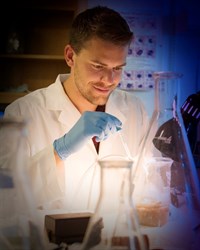
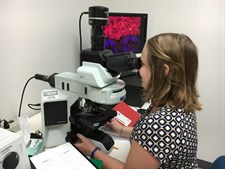
 VMTH Room 101 | 12–1 pm
VMTH Room 101 | 12–1 pm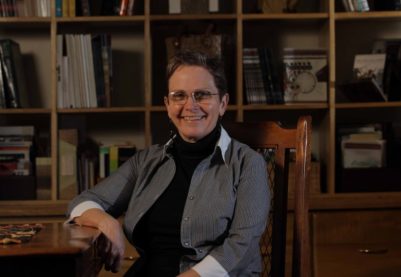 Presenter:
Presenter: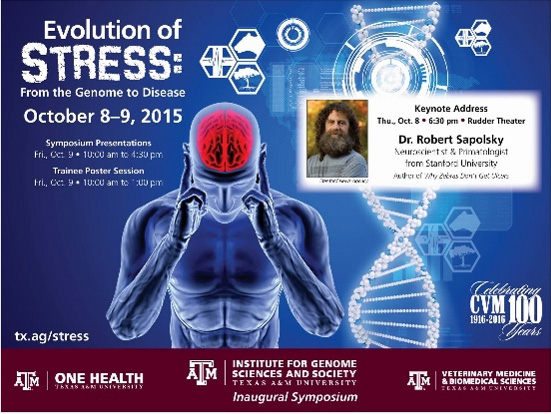
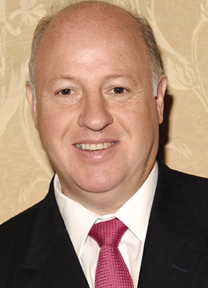 Presenter:
Presenter: TIPS Auditorium | 3:30–4:30 pm
TIPS Auditorium | 3:30–4:30 pm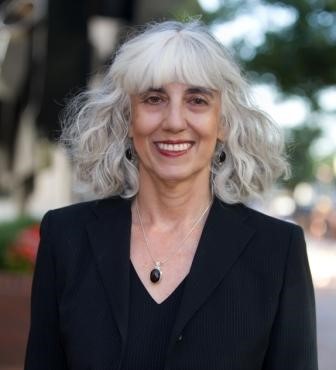 VMTH 101 | 12–1 pm
VMTH 101 | 12–1 pm VMA Room 329 | 12–1 pm
VMA Room 329 | 12–1 pm